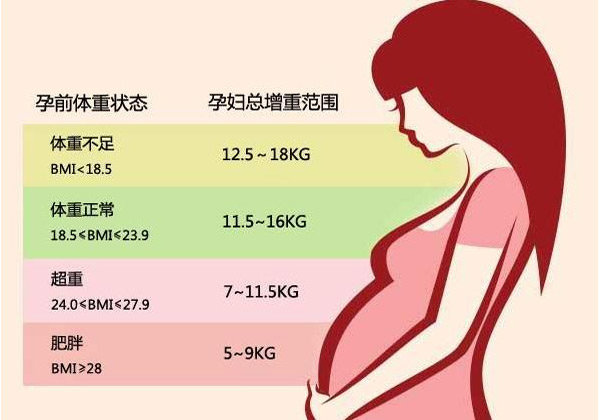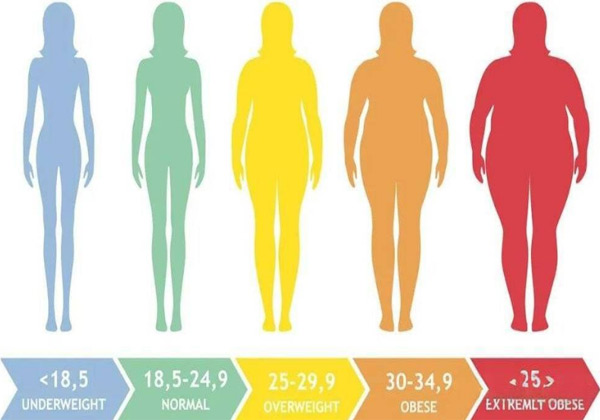Importance of Surrogate Mother's Body Mass Index (BMI) in Surrogacy

代孕母亲帮助另一个家庭实现生育梦想,她的健康状况直接关系到婴儿的安全与成功妊娠。检查健康的重要指标之一是体重指数(BMI),它反映一个人是否过轻、适中或过。过高或过低的BMI都会增加妊娠并发症的风险,并可能影响胚胎着床的成功率。在本文中,我们将讨论为什么BMI在代孕中至关重要。它不仅影响怀孕过程,还可能对婴儿的健康产生长期影响,例如增加神经管畸形或哮喘的风险。我们还将解释如何通过合理饮食和生活方式调整来优化BMI,从而提高代孕成功率并保障母婴健康。代孕母亲可以采取这些措施以更好地准备身体条件,迎接健康的孕期旅程。
什么是BMI?如何计算?
一、什么是BMI?
BMI代表体重指数(Body Mass Index),是一个用来衡量一个人是否拥有健康体重的数值。它通过结合体重和身高的比例,反映人体胖瘦程度以及健康状况。医生广泛使用BMI来判断一个人是体重不足、正常体重、超重还是肥胖。尽管BMI是一种简单且有效的工具,但它并不能区分肌肉与脂肪的比例,因此对某些特殊人群(如运动员或老年人)可能不够准确。
二、如何计算BMI?
为了计算BMI,医生使用以下公式:
体重(以千克为单位)÷ 身高(以米为单位的平方)。
这个公式由比利时数学家凯特莱(Adolphe Quetelet)提出,被世界卫生组织(WHO)推荐为评估肥胖程度的标准。例如:如果您体重70公斤,身高1.75米:
BMI = 70 ÷ (1.75 × 1.75) = 22.9。
这意味着您的BMI是22.9,属于健康体重范围。
尽管BMI计算简单,但它并不适用于所有人。例如,孕妇、儿童和肌肉发达的人群(如运动员)可能因特殊的生理条件而出现偏差。因此,在评估个人健康时,医生通常会结合其他指标(如腰围、体脂率等)进行综合分析。总的来说,BMI是一种快速筛查工具,能帮助人们了解自己的体重是否在健康范围内。然而,保持健康的生活方式才是关键,包括均衡饮食、适量运动和定期体检。
BMI分类
以下是BMI的分类:
- 体重不足:小于18.5。
- 正常体重:18.5–24.9。
- 超重:25–29.9。
- 肥胖:30或以上。
每种分类都有其特定的健康风险,尤其是在代孕过程中。
为什么BMI对代孕候选人很重要?
1、医学资格
代孕机构在接受代孕母亲之前会检查BMI,因为健康的BMI是确保妊娠顺利进行的重要指标。BMI反映了一个人的体重与身高的比例,健康的BMI意味着怀孕期间的风险更少,例如减少妊娠糖尿病、高血压等并发症的发生概率。大多数代孕机构要求代孕母亲的BMI低于36,以确保她能够承受怀孕期间的身体负担。此外,过高的BMI可能影响子宫环境,从而降低胚胎着床的成功率[[1]]。
2、怀孕风险
高BMI可能导致以下问题:
- 妊娠糖尿病:高BMI的女性更容易在怀孕期间出现胰岛素抵抗,导致妊娠糖尿病。这不仅威胁母亲的健康,还可能增加胎儿出生后肥胖或代谢性疾病的风险。
- 子痫前期:子痫前期是一种严重的妊娠并发症,常见于高BMI的孕妇。它会导致高血压和器官损伤,严重时甚至危及母婴生命。
- 剖腹产:高BMI增加了剖宫产的可能性,因为肥胖可能导致分娩困难,并延长手术恢复时间。
3、低BMI也可能是危险的
低BMI可能导致营养缺乏或早产。体重不足的代孕母亲可能无法为胎儿提供足够的营养支持,从而影响胎儿的正常发育。此外,低体脂率可能干扰激素平衡,进一步增加早产或其他并发症的风险。
4、生育治疗
BMI会影响像IVF这样的生育治疗效果。高BMI会降低成功率,因为肥胖可能改变子宫内膜的环境,影响胚胎着床。研究表明,BMI高于30的女性在IVF治疗中的成功率显著下降,同时流产风险上升。低BMI也可能使受孕更加困难。体重过轻可能导致排卵不规律或完全停止,从而影响生育能力。代孕母亲需要保持适当的体脂率,以确保身体能够支持妊娠过程。
5、母婴健康
健康的BMI不仅保护代孕母亲,还能保障婴儿的健康。高BMI增加出生缺陷和死胎的风险。例如,肥胖的母亲更容易生出患有先天性心脏病或神经管畸形的婴儿。此外,高BMI还会增加巨大儿(出生体重超过4公斤)的概率,这可能导致分娩困难和新生儿健康问题。低BMI同样会对母婴健康造成威胁。代孕母亲如果体重不足,可能会导致胎儿宫内发育迟缓(IUGR),增加新生儿死亡率和长期健康问题的风险。因此,维持一个健康的BMI范围(通常为18.5–24.9)是确保代孕成功的关键。
BMI如何影响怀孕成功率?
1、活产率
BMI正常的女性活产率更高,因为健康的体重为胚胎发育提供了最佳的生理环境。研究表明,高BMI会显著降低活产率,尤其是在体外受精(IVF)治疗中。当BMI超过24 kg/m²时,每增加一个单位,新鲜胚胎移植的流产率增加11.1%,累积活产率降低6.3%。这可能与高BMI引发的内分泌失调、子宫内膜炎症以及卵子质量下降有关。此外,低BMI同样会影响活产率,因为体重不足可能导致排卵异常或激素水平不稳定,从而干扰胚胎着床和胎儿发育。
2、流产风险
高BMI虽然不会直接增加流产风险,但它增加了其他并发症的可能性,这些并发症可能间接导致流产。例如,高BMI女性更容易患妊娠糖尿病和高血压,这些问题可能威胁胎盘功能,增加流产或早产的风险。此外,肥胖可能导致慢性子宫炎症,从而影响胚胎的稳定发育。对于低BMI女性,营养不良或激素失衡也可能增加流产概率。因此,无论是过高还是过低的BMI,都可能通过不同机制对妊娠结果产生负面影响。
3、胚胎植入
高BMI可能使胚胎更难植入子宫,因为肥胖会导致子宫内膜的微环境发生改变,例如减少血流供应或增加炎症因子,从而影响胚胎着床的成功率。研究发现,较高的BMI与较低的胚胎植入潜力相关,特别是在年轻低预后女性中更为明显。此外,高BMI还可能干扰子宫内膜的容受性,这是胚胎成功植入的关键因素。对于低BMI女性,子宫内膜可能因营养不足而变薄,进一步降低胚胎植入的可能性。
综上所述,BMI对怀孕成功率的影响体现在多个方面:正常的BMI有助于提高活产率,而过高或过低的BMI则可能通过增加流产风险和阻碍胚胎植入来降低妊娠成功率。维持健康的体重不仅是代孕母亲的重要任务,也是保障母婴健康的关键措施。
代孕机构和BMI要求
常见的BMI限制
大多数机构设定BMI限制:
- 最高BMI:通常为33–36。
- 最低BMI:大约为18.5–20。

为什么BMI重要
机构关注BMI,因为它减少了代孕母亲和婴儿的风险。健康的BMI有助于降低妊娠并发症的发生率,从而保障母婴安全。例如,正常BMI范围内的女性在怀孕期间患高血压或糖尿病的概率显著降低,这直接提升了活产率和婴儿的健康水平。
例外情况
如果代孕母亲其他方面健康,一些机构允许较高的BMI。这种灵活性基于个体差异,但通常需要额外的医疗监测以降低潜在风险。
与代孕中高或低BMI相关的健康风险
1、高BMI风险
高BMI可能导致:
- 子痫前期:BMI为35的女性患子痫前期的风险是普通人的两倍,可能危及生命。
- 妊娠糖尿病:高BMI增加胰岛素抵抗,导致妊娠糖尿病风险上升。
- 剖腹产:肥胖会增加手术复杂性,延长恢复时间。
2、低BMI风险
低BMI可能导致:
- 营养缺乏:胎儿可能因母体营养不足而发育迟缓。
- 早产:体重不足的母亲更容易出现早产,影响新生儿健康。
3、长期影响
高或低BMI可能影响婴儿日后的健康,包括代谢性疾病和认知发育问题。例如,母亲孕前BMI过高或孕期增重过多,会增加后代成年后肥胖、糖尿病和心血管疾病的风险。而低BMI则可能导致婴儿神经系统发育不全,影响认知能力和学习表现。
因此,维持健康BMI对母婴至关重要。健康的体重不仅能降低妊娠期并发症的发生率,还能优化胎儿的生长环境,减少出生缺陷和长期健康问题的风险。代孕母亲在怀孕前后应注重体重管理,通过均衡饮食、适量运动和定期医学评估来确保母婴健康。
改善BMI的步骤
以下是达到健康BMI的方法:
- 均衡饮食:包括水果、蔬菜和蛋白质。
- 定期锻炼:散步、游泳或做瑜伽。
- 保持水分:多喝水。
医学评估
医生在怀孕前和怀孕期间监测BMI。这有助于及早发现潜在问题,例如妊娠糖尿病或高血压。通过定期检查,医生可以根据BMI变化调整治疗方案,确保母婴健康。此外,对于BMI异常的代孕母亲,医生可能会建议个性化饮食和运动计划,以降低妊娠风险。
总之,优化BMI需要科学的饮食、规律的运动和充足的水分摄入,同时结合医学监测,为成功代孕提供保障。
揭示范BMI在代孕中的误区
误区1:BMI是唯一的健康指标
BMI很重要,但不是唯一因素。其他如饮食和运动也很重要。
误区2:高BMI总是意味着失败
一些高BMI的女性也能成功怀孕。仔细监测会有帮助。
误区3:低BMI总是安全的
低BMI也可能导致问题。最好目标是健康的范围。
常见问题解答
- 代孕母亲的理想BMI是多少?
理想的BMI介于18.5到30之间。这一范围被认为能降低妊娠并发症风险,同时为胎儿提供健康的生长环境。
- 如果我的BMI略高于限制,我可以成为代孕母亲吗?
如果其他方面健康,一些机构允许例外情况。例如,若无其他健康问题且经过医生评估,BMI稍高的女性仍可能被接受,但需更严格的孕期监测。
- BMI如何影响婴儿的健康?
高BMI增加出生缺陷和死胎的风险。肥胖可能导致胎儿神经管畸形、先天性心脏病等问题,并影响胎盘功能,威胁胎儿生存。
- 代孕中是否有BMI要求的例外?
是的,如果代孕母亲健康,一些机构允许较高的BMI。然而,这通常需要额外的医学检查以确保妊娠安全。
- 我可以采取哪些措施来改善我的BMI以进行代孕?
均衡饮食、定期锻炼并保持水分。例如,减少高热量食物摄入,增加蔬菜和蛋白质比例,同时每周进行至少150分钟的中等强度运动,如快走或游泳。
结论
BMI对代孕非常重要。它不仅是评估代孕母亲健康状况的关键指标,还能显著影响妊娠成功率和婴儿的健康。通过保持健康的BMI(通常建议在18.5–30之间),代孕母亲可以降低妊娠糖尿病、子痫前期等并发症的风险,并提高胚胎着床率和活产率。如果您考虑成为代孕母亲,请咨询医生。他们可以帮助您了解您的BMI以及如何保持健康。医生可能会根据您的具体情况提供个性化的饮食和运动建议,确保您以最佳状态迎接代孕旅程。